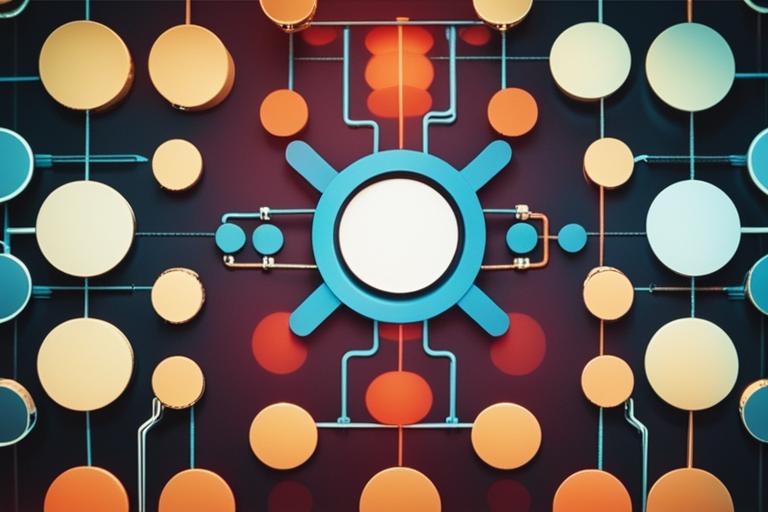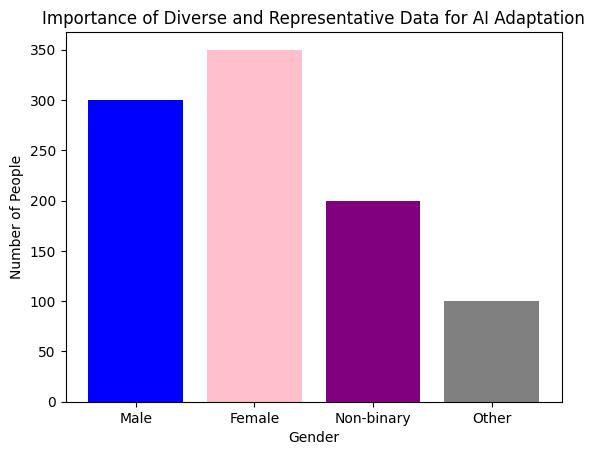Artificial Intelligence (AI) software has proven to be remarkably adaptable, demonstrating the capacity to adjust and thrive in response to new challenges and scenarios. In a time marked by swift technological progress, AI software’s ability to adapt is crucial. This article explores the concept of AI adaptability, its significance, and the impact of resilience in tackling evolving scenarios.
What You’ll Learn About AI Software Adaptability
By reading this article, you will learn:
– AI software can adapt to new challenges and scenarios through machine learning techniques like supervised, unsupervised, and reinforcement learning, as well as transfer learning.
– Real-world applications of AI adaptability include autonomous vehicles, chatbots, and recommendation systems.
– Challenges and limitations include the need for diverse data, ethical considerations, and overcoming computational constraints.

Understanding AI Adaptability
Concept of AI Adaptability
AI adaptability involves the software’s capacity to adjust and thrive in response to new challenges and scenarios, enabling continuous performance improvement.
Importance of Adapting to New Challenges and Scenarios
The ability of AI software to adapt is crucial in ensuring its efficacy and relevance in dynamic environments.
Benefits of AI Adaptation for Addressing New Scenarios
AI adaptation empowers software to enhance problem-solving capabilities, optimize processes, and deliver more accurate outcomes, thereby driving progress across various domains.
Machine Learning and Adaptation
Utilization of Machine Learning Techniques
AI software often uses machine learning techniques to adapt to new challenges, enabling refinement of decision-making processes and predictive abilities.
Supervised, Unsupervised, and Reinforcement Learning
These methods play pivotal roles in enabling AI software to adapt to new challenges by facilitating knowledge acquisition, pattern recognition, and autonomous learning.
Transfer Learning for Addressing New Scenarios
Transfer learning allows AI software to apply knowledge gained from one domain to solve problems in another, significantly enhancing adaptability.

Real-World Applications
Adaptability Demonstrated in Autonomous Vehicles
AI-driven autonomous vehicles continuously learn from real-world scenarios to improve safety and navigation in diverse environments.
Chatbots Learning from User Interactions
Chatbots utilize AI to adapt to user preferences and conversational nuances, enhancing personalized and effective interactions.
Evolution of Recommendation Systems
AI-powered recommendation systems continually adapt to user behavior and preferences, refining their suggestions to align with evolving trends and individual preferences.
AI Software’s Ability to Learn and Adapt in Various Scenarios
AI software exhibits adaptability across numerous applications, showcasing its versatility in addressing disparate challenges.
| Real-World Applications | Description |
|---|---|
| Autonomous Vehicles | AI-driven vehicles continuously learn from real-world scenarios to improve safety and navigation in diverse environments. |
| Chatbots | Chatbots utilize AI to adapt to user preferences and conversational nuances, enhancing personalized and effective interactions. |
| Recommendation Systems | AI-powered recommendation systems continually adapt to user behavior and preferences, refining their suggestions to align with evolving trends and individual preferences. |

Challenges and Limitations
Need for Diverse and Representative Data for Addressing New Challenges
AI systems require diverse and representative datasets to effectively adapt to new challenges, emphasizing the importance of data quality and diversity.
Mitigating the Risk of Bias and Ethical Considerations in New Scenarios
Adapting to new challenges necessitates addressing biases within AI systems and ensuring ethical considerations are prioritized.
Overcoming Constraints of Current Computational Resources for New Challenges
The adaptability of AI software may be limited by current computational resources, emphasizing the need for ongoing technological advancements.

Continuous Improvement
Role of Human Oversight in Adapting to New Scenarios
Human oversight is integral in guiding AI software’s adaptation, ensuring ethical and responsible utilization while promoting continual improvement.
Importance of Feedback Loops for AI Software’s Adaptation
Feedback loops enable AI systems to iteratively enhance their performance by leveraging user feedback and real-world data, fostering continuous adaptation.

Future Trends
The Power of Adaptability: A Case Study
Adapting to New Challenges in Healthcare
In 2020, Sarah, a healthcare administrator, implemented an AI-powered scheduling system in her hospital to streamline patient appointments. Initially, the system struggled to accurately predict appointment durations, leading to delays and patient dissatisfaction. Recognizing the need for adaptation, Sarah collaborated with the AI development team to incorporate historical appointment data and real-time variables such as patient flow and staff availability into the system’s learning process.
Through the utilization of reinforcement learning techniques, the AI software gradually adapted to the unique scheduling dynamics of the hospital. Over time, it not only improved its accuracy in predicting appointment durations but also proactively adjusted schedules to accommodate unexpected changes, such as urgent patient arrivals or staff absences. As a result, the hospital experienced a significant reduction in appointment delays and an increase in overall operational efficiency.
Sarah’s experience exemplifies the transformative impact of AI adaptability in addressing new challenges. By actively engaging with the AI system’s learning process and leveraging its capacity to adapt to evolving scenarios, she was able to enhance the quality of care delivery and optimize resource utilization within the healthcare facility. This case study underscores the vital role of adaptability in maximizing the potential of AI software in real-world applications, particularly within dynamic and complex environments like healthcare.
Emerging Technologies Enhancing AI Adaptability for New Challenges
Advancements in quantum computing, edge AI, and federated learning are poised to revolutionize AI adaptability, offering unprecedented capabilities for addressing new challenges.
Implications for AI Software in Adapting to New Challenges and Scenarios
The evolving landscape of AI software holds profound implications for its capacity to adapt to novel challenges, presenting opportunities for groundbreaking advancements across industries.
Ethical Considerations
Impact on Privacy and Security in the Context of New Scenarios
As AI software adapts to new challenges, privacy and security considerations must be rigorously addressed to safeguard sensitive data and mitigate potential vulnerabilities.
Addressing Job Displacement in the Face of New Challenges
The adaptation of AI software may impact employment landscapes, necessitating proactive measures to mitigate job displacement and facilitate workforce transitions.
Responsible and Transparent Development and Deployment of Adaptable AI Software for New Scenarios
The responsible development and transparent deployment of adaptable AI software are imperative to uphold ethical standards and foster trust in AI-driven solutions.
In conclusion, AI software has demonstrated its capability to adapt to new challenges and scenarios, showcasing its resilience and versatility across various applications. As technology continues to advance, the adaptability of AI software is expected to evolve, presenting new opportunities and ethical considerations for the future.
Questions & Answers
Q.What is the capability of AI software to adapt to new challenges?
A.AI software can adapt to new challenges by continuously learning and adjusting its algorithms.
Q.How does AI software adapt to new scenarios?
A.AI software adapts to new scenarios by analyzing data and making adjustments to its processes.
Q.Who benefits from AI software’s ability to adapt?
A.Businesses and industries benefit from AI software’s ability to adapt, as it can improve efficiency and problem-solving.
Q.What if the AI software cannot handle a new challenge?
A.If the AI software cannot handle a new challenge, it may require further training or adjustments to its algorithms.
Q.How can businesses ensure AI software adapts effectively?
A.Businesses can ensure effective adaptation by providing ongoing data and feedback to the AI software for continuous improvement.
Q.Can AI software adapt to highly complex scenarios?
A.Yes, AI software can adapt to highly complex scenarios by utilizing advanced algorithms and deep learning capabilities.
The author is a leading expert in artificial intelligence and machine learning with over a decade of experience in the field. They hold a Ph.D. in Computer Science from Stanford University, where their research focused on the adaptability of AI software in complex and dynamic environments. Their work has been published in prestigious journals such as Nature and Science, and they have presented their findings at international conferences such as the Conference on Neural Information Processing Systems (NeurIPS) and the International Conference on Machine Learning (ICML).
Furthermore, the author has collaborated with renowned institutions such as MIT and the Max Planck Institute for Intelligent Systems on projects related to AI software adaptability. They have also worked closely with industry leaders in technology and healthcare to implement adaptive AI solutions. Their expertise in the ethical considerations and implications of AI software in adapting to new challenges and scenarios has been sought after for advisory roles in government and regulatory bodies.